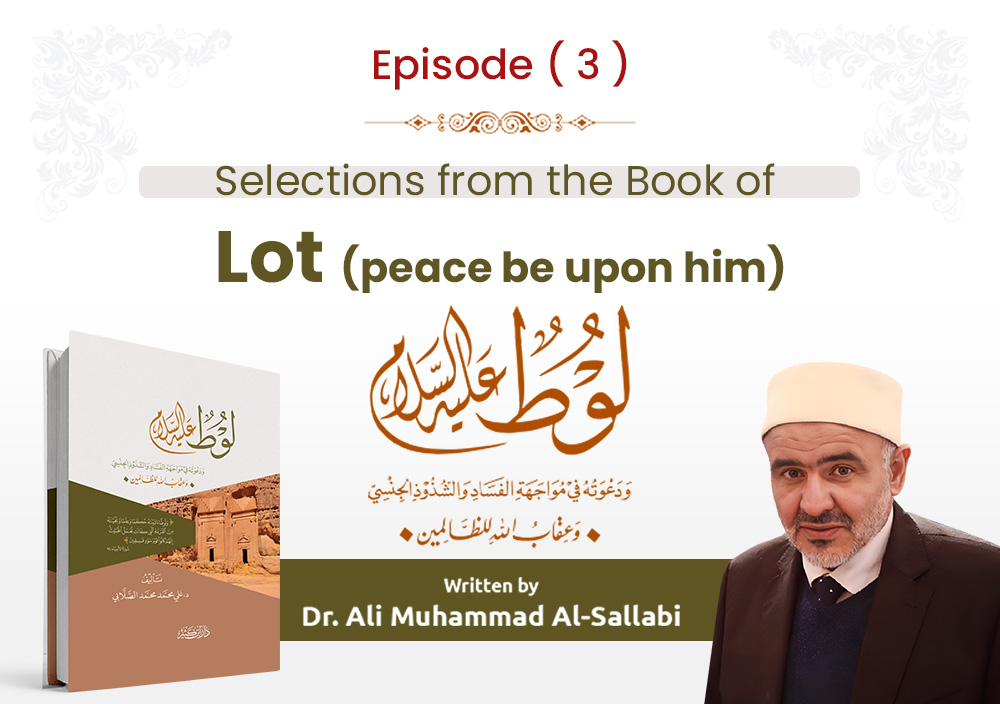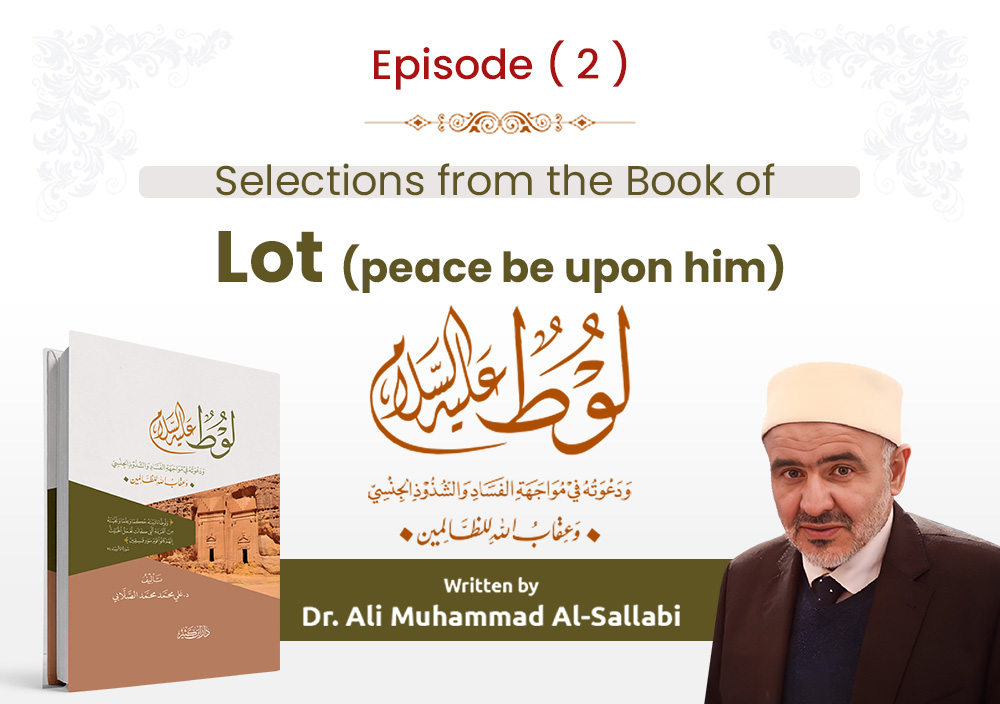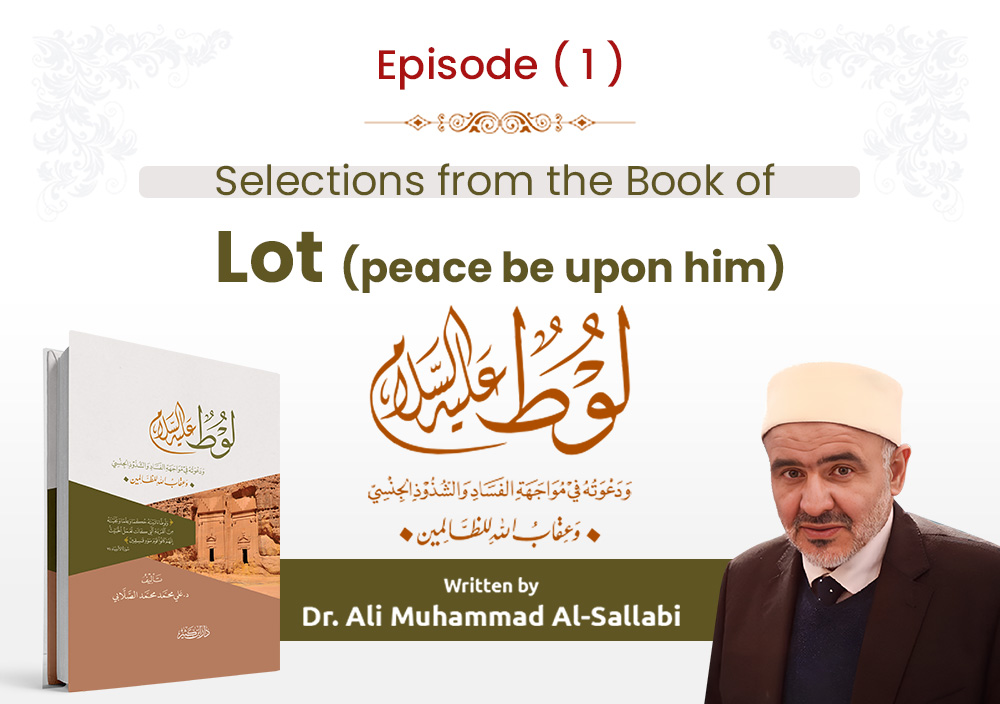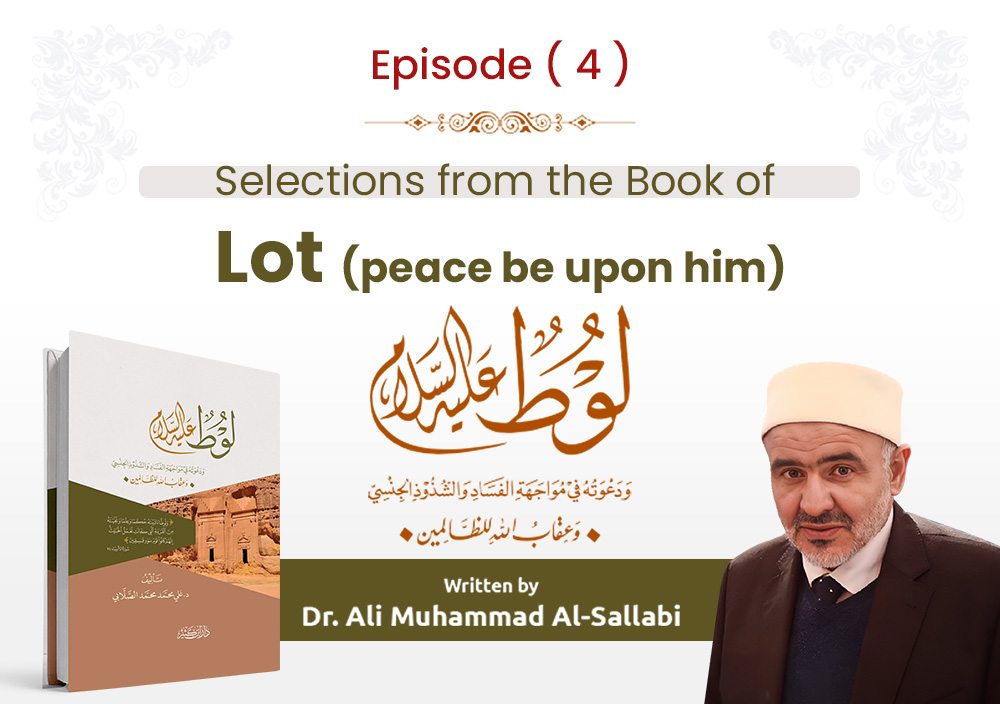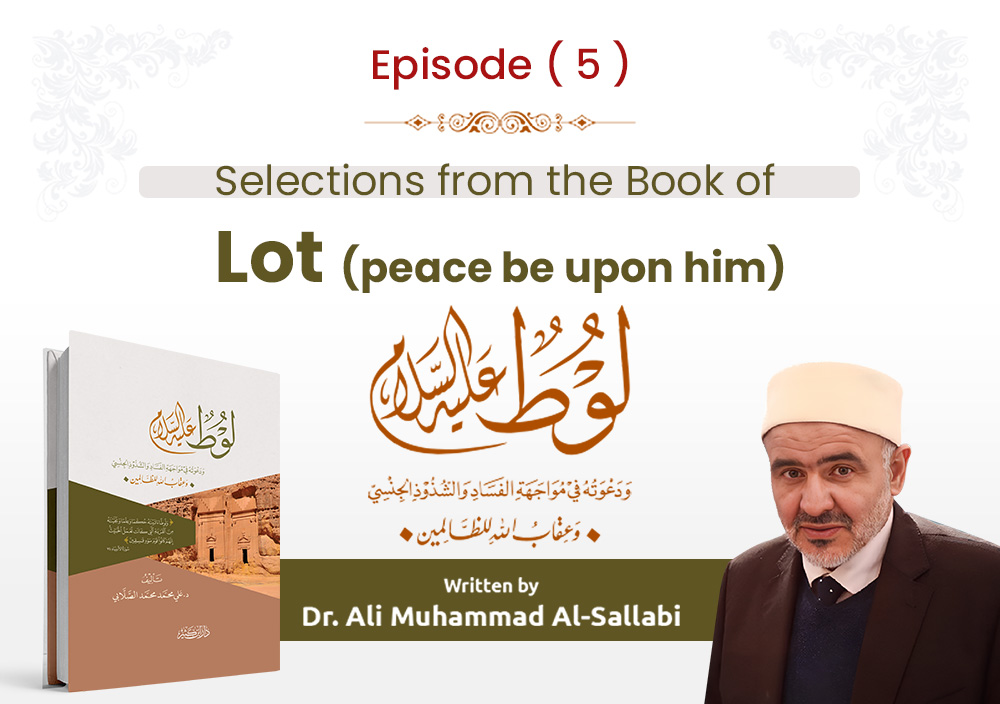The birth of Lot (peace be upon him) and his era; P.1
Selections from the Book Lot (peace be upon him) and his Mission in Confronting Corruption and Sexual Deviance …
Written by Dr. Ali Muhammad al-Sallabi...
Episode (3)
Lot (peace be upon him) was born in the land of the Chaldeans in Iraq, specifically in the region of Babylon. He grew up in an environment of idol worship, with a moderate upbringing. His grandfather, the father of Abraham (peace be upon him), was a skilled carpenter who crafted idols and traded in them, as it was his livelihood in this pagan society. Lot was greatly influenced by the call of his uncle Abraham. He disregarded the practices of his grandfather, father, and the entire community, and instead found in his uncle Abraham a noble example to follow. He was raised under his guidance, benefited from his knowledge, believed in his call, and remained steadfast in his support, even in the darkest circumstances and challenges that his uncle faced from that idolatrous society.
1- Religious life:
Lot (peace be upon him) grew up in the same society where Abraham (peace be upon him) was born, a society dominated by the worship of celestial bodies, idols, and even the prostration to kings and rulers instead of Allah, the Almighty.
Lot (peace be upon him) followed the path of his uncle Abraham (peace be upon him), whose life represented the call to monotheism, emphasizing the worship of Allah alone.
The land of Mesopotamia was home to many Arab tribes that migrated from the Arabian Peninsula and other regions due to the fertility of its land and the ease of life there. However, various forms of worship and beliefs prevailed due to the diversity of the migrants' idolatries and false beliefs they brought with them. These included idol worship, star worship, the deification of kings, and the worship of cosmic phenomena. I have detailed this in my book "Abraham Khalilullah; A Caller to Monotheism, Islam, and the Role Model", Those interested in further exploration can refer to it.
2- Social and political life:
Society in Mesopotamia consisted of three classes:
The first class: The Free Class:
The Free Class consists of the ruling elite, with the royal family at the forefront, holding a sacred and respected position. This reverence stems from the status that the king and his family held among the people, considering the king as a representative of the gods on earth and their deputy. This class also includes the children of nobles, ambassadors, temple overseers, military leaders, tax collectors, and priests.
The second class is the middle class, known as "Al-Maskinun":
It consists of the sons of the middle class who make up the military battalions, equipped with weapons to work in the camps. They are treated equally under the law, enjoying rights and duties unless otherwise specified by law. Although theoretically all were considered free, in reality, a significant portion of them had restricted freedoms due to their difficult economic circumstances.
The third class: the poor and slaves:
This class comprises war captives, prisoners of war, and those sold in slave markets. Additionally, individuals from the middle class can be considered part of the slave class under certain circumstances, such as committing specific crimes defined by law, being unable to repay debts, or being disowned by their adoptive parents. Similarly, a wife can fall into the slave class if she denies her husband or he disowns her.
This class had no influence on society and its members were not treated as humans, but rather as commodities. They were known by the names of their owners, and if any harm befell them, compensation was paid to their owners. They were distinguished from the rest of society either by cutting their hair or by marking their bodies with signs of servitude.
Episode references:
- Ali Muhammad al-Sallabi, Lot (peace be upon him) and his Mission in Confronting Corruption and Sexual Deviance, pp. 33-35.
- Lot and his people in the Qur’an and Sunnah, p. 47.
- Abraham, peace be upon him, in the scriptures of the Jews, exposition and criticism, Fatima bint Khaled Durman, master’s thesis, Umm Al-Qura University, Faculty of Da’wah and Fundamentals of Religion, Department of Doctrine, 1421.
- Egypt and the Ancient Near East, Egypt from the dawn of history to the establishment of the modern state, Naguib Mikhail Ibrahim, The Historical Library, 4th edition, 1963 AD, p. 30.
For further information and review of the sources for the article, see:
The Book of ‘’Lot (peace be upon him) and his Mission in Confronting Corruption and Sexual Deviance’’ on the official website of Sheikh Dr. Ali Muhammad al-Sallabi:


